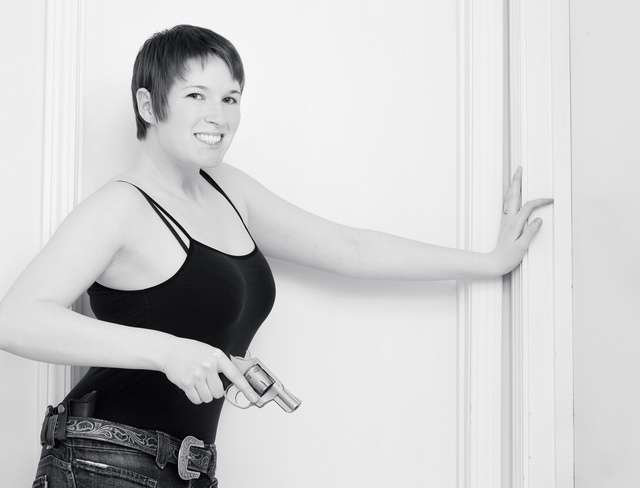The Volokh Conspiracy
Mostly law professors | Sometimes contrarian | Often libertarian | Always independent
Private Gun Carriers' Self-Defense Against Public Shooters
The Charleston (West Virginia) incident from a few days ago, the FBI 2021 statistics, and more.

Mass shooting incidents—or incidents that looked like they might have become mass shootings—often lead both to some calling to try to limit would-be killers' access to guns, and others calling to try to increase the number of law-abiding people who can have guns easily available for defensive purposes. Both kinds of calls in turn lead to practical skepticism:
- Can we really effectively stop people who are willing to deliberately plan to violate laws against murder, just by adding more laws against gun possession or carrying?
- And can we really expect ordinary citizens to stop would-be murderers?
Whatever your answer to these questions, it seems to me that they are good questions to ask. Optimally, they would be answered through careful data analysis, but good data on such matters is often hard to get. And sometimes, even some specific illustrations can be helpful (whether specific illustrations of shootings or of citizens stopping the shootings).
Because of that, I thought I'd offer a story from a couple of days ago; it's been long enough since the shooting that at least some of the initial factual uncertainty is likely to have been resolved. From WCHS-TV (see also the Associated Press); there's also a video of an interview with the chief (starting at about 1:10):
Police said a woman who was lawfully carrying a pistol shot and killed a man who began shooting at a crowd of people Wednesday night in Charleston.
Dennis Butler was killed after allegedly shooting at dozens of people attending a graduation party Wednesday …. No injuries were reported from those at the party.
Investigators said Butler was warned about speeding in the area with children present before he left. He later returned with an AR-15-style firearm and began firing into the crowd before he was shot and killed.
"Instead of running from the threat, she engaged with the threat and saved several lives last night," Charleston Police Department Chief of Detectives Tony Hazelett said.
According to WCHS-TV (Bob Aaron), Butler was a convicted felon, and was thus not legally allowed to own guns. In principle, perhaps he might still have been stopped by (say) a law requiring background checks, which would likely have stopped law-abiding sellers from selling him the gun; but it's not clear whether someone with his criminal record would have much been stymied by that, as opposed to just buying a gun on the black market. Chief Hazelett reported in the video interview that the woman was legally allowed to carry (in West Virginia any law-abiding adult 21 and above can carry a concealed weapon without the need for a license).
I gathered some more examples from over the years here, and then followed up with data based on FBI reports of mass shootings in 2016 and 2017: legal civilian gun carriers tried to intervene in 6 out of 50 incidents, and apparently succeeded in 3 or 4 of them.
The FBI also has just released 2021 data; it reports 61 "active shooter" incidents (of which 12 were treated as "mass killing" incidents), and 4 of those active shooter incidents led to "shooters [being] killed by citizen," all apparently involve gun-wielding citizens (PDF p. 4, 11-12). Two more incidents involved citizens detaining a shooter without using guns themselves. (Some of the incidents I discussed in my earlier post involved gun-wielding citizens stopping a shooter without killing him, but none seem to have occurred that way in 2021.)
A few thoughts, which I'd mentioned before, but which I thought I'd repeat:
[1.] Unsurprisingly, sometimes the good guy (or gal) with a gun succeeds and sometimes not. Sometimes the success might be a lucky break; sometimes a lucky break for the defender might have ended the incident more quickly. And it's impossible to tell for sure how many lives, if any, were saved in the aggregate, because that's generally a counterfactual. Still, the aggregate pattern seems to be that armed civilian self-defense takes place in a significant fraction of active shooter incidents.
[2.] None of this proves that broad concealed carry rights on balance do more good than harm (or vice versa). But it is a response to claims that I've heard that the good guy with a gun never helps; these incidents further show that there are potential pluses to broad concealed carry rights, and of course there are potential minuses as well.
[3.] Some shootings are in places where concealed carry is not allowed, such as on school premises or in jurisdictions where concealed carry licenses are often hard to get. It's hard to tell for sure how many of the shootings fit into this category, because laws vary from state to state, and rules vary from business to business (plus in some states carrying in a business that prohibits guns is itself a crime). But it's possible that there would have been more defensive uses of guns in some cases if people were legally allowed to have their guns there.
[4.] Finally, always keep in mind that active shooter situations should not be the main focus in the gun debate, whether for gun control or gun decontrol: They on average account for less than 1% of the U.S. homicide rate and are unusually hard to stop through gun control laws (since the killer is bent on committing a publicly visible murder and is thus unlikely to be much deterred by gun control law, or by the prospect of encountering an armed bystander). But people talk about them a lot, so I thought I'd offer a perspective on them for those who are interested.
Show Comments (257)